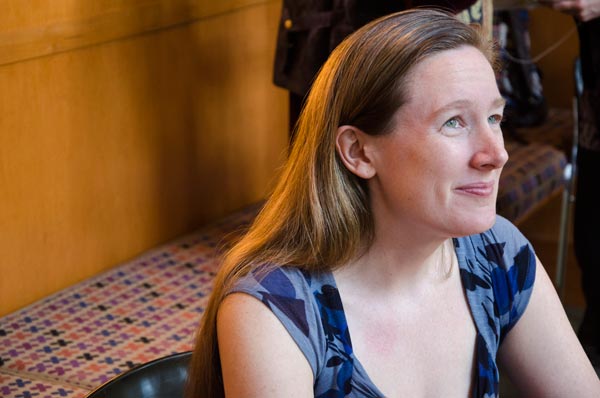
“Virginia Woolf’s ORLANDO as adapted by Sarah Ruhl” coming to Balch Street Theatre
The New World Performance Laboratory seems to regularly bring some interesting – wait, make that zany, unusual, unpredictable, or simply out-there – theatrical experiences to their Balch Street Theatre. This time the group is presenting the offbeat “Virginia Woolf’s ORLANDO as adapted by Sarah Ruhl,” a work described by promotions and critical voices as a gender-bending novel turned play that is a good take on Woolf’s playful, passionate, and poetic telling of the life of the title character.
Virginia Woolf’s novel tells the story of a young man named Orlando, who was born in England during the reign of Queen Elizabeth I, and who is still active some 300 years later. But ah, what a journey he/she has.
As a man, Orlando has an affair with the Queen. After her death he has yet another brief, intense love affair, this time with Sasha, who is ostensibly a Russian princess, who leaves him to return home.
Desolate, Orlando returns to writing – his long poem called “The Oak Tree.” About the same time, he meets up with a famous poet, Nicholas Greene, who criticizes Orlando’s writing. If that’s not bad enough, Orlando learns that Green portrays him badly in one of his works.
With that period done, Orlando stays home and plays host to people around him. He meets up with the Archduchess Harriet, who pesters him enough so that Orlando flees when appointed ambassador to Constantinople by King Charles II. While there he falls asleep for a period of days. Upon awakening, he finds that he has metamorphosed into a woman.
As a woman, Orlando heads back home to England. On the sea journey, certain incidents and attentions make her realize the value and power of her womanliness.
Orlando isn’t the only changeling. The archduchess turns out to be actually the Archduke Harry, who is equally as persistent as a man. Orlando evades all harassment only to go through several more years switching back and forth between being a man or a woman.
Orlando over the years meets up with still more famous poets, like Alexander Pope. The poet Greene returns into the story, apparently also a timeless personality, and this time promotes Orlando’s writing.
Toward the end of the story, Orlando marries a sea captain, Marmaduke Bonthrop Shelmerdine. In 1928, she finally publishes “The Oak Tree,” centuries after starting it.
Reviewers have noted that most of the text in the Sarah Ruhl stage version comes directly from the novel. One critic wrote that Woolf’s deliciously frolicsome tone, with the narrator merging the mock-serious voice of a sober biographer with a frank acknowledgment of the impossibility of teasing out truth from the mists of history, comes through with its bright, pealing wit.
The version to be seen at the Balch Street Theatre will be directed by NWPL co-artistic director James Slowiak, with costume design by Inda Blatch-Geib, and lighting design by Chris Hariasz.
“Virginia Woolf’s ORLANDO as adapted by Sarah Ruhl” will be performed at 8 p.m. from Thursday-Saturday and 2 p.m. on Sunday August 7-16 by the New World Performance Laboratory players in the Balch Street Theatre, 220 S. Balch St., Akron; 330-867-3299; www.nwplab.com. Tickets are $15 ($10 for students).
Recent Content
-
Artsarticle ·
-
Artsarticle ·
-
Artsarticle ·
